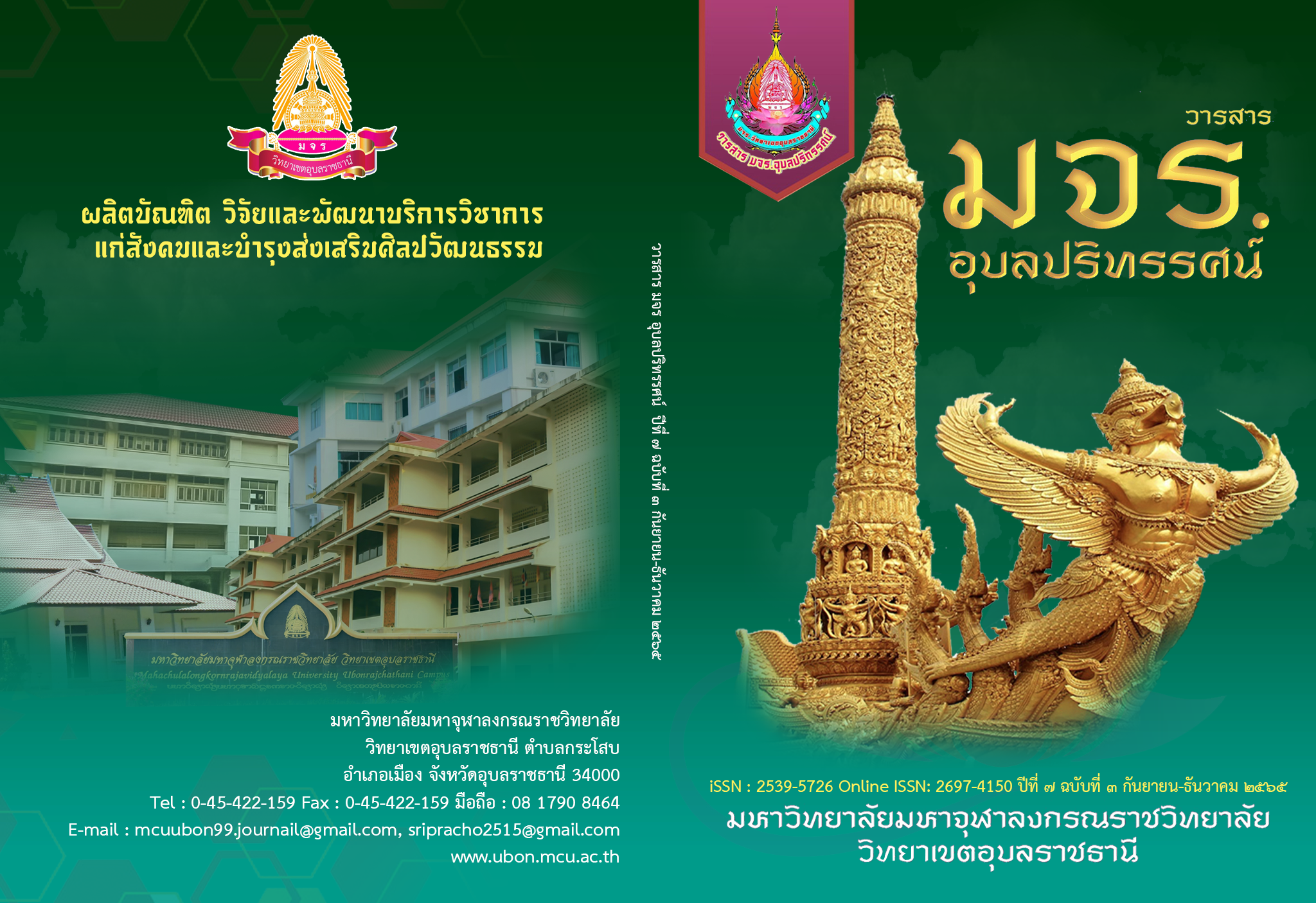A STUDY ON THE RELATIONSHIP BETWEEN LIFE SATISFACTION AND PARENTING STYLE OF COLLEGE STUDENTS AT PRIVATE UNIVERSITIES OF HUNAN PROVINCE, CHINA
Main Article Content
บทคัดย่อ
This study mainly explored the relationship between life satisfaction and parenting style of private college students at private universities of Hunan Province, China. A total of 381 private college students from Hunan province, China participated in this study, and 371 valid questionnaires were finally collected and analyzed. Descriptive statistics and correlation analysis were applied to analyse the relationship between college students’ life satisfaction and parenting style at private colleges in Hunan province, China. The research results showed that: the parenting style and life satisfaction of college students in private universities in China and Hunan were above the average level; as for parenting styles, the emotional warmth dimension scored the highest, while the rejection dimension scores the lowest, which was lower than the theoretical median. There was a significant correlation of college students parenting style and life satisfaction at private colleges in Hunan Province, China. Discussion and recommendations were provided by the end of the study
Article Details
References
Fan, L., Liu, W. & He, F.M. (2022). The influence of parenting style on children's emotions. Medical Diet and Health 45(1), 183-185.
Guo, B.F. & Huang, H. (2017). A study on the relationship between parenting style and life satisfaction of primary school students: A case study of rural primary schools in Xiangtan. Contemporary Education Theory and Practice 13(9), 9-13.
Hao, Y. & Li, X.Y. (2020). Parenting style and college students' classroom participation: chain mediation effect of learning motivation. China Journal of Health Psychology. 13(2), 98-109.
Hou, Y.F., Zhao, J.B., Yang, X.L. & Zhang, X.Y. (2018). Mediating role of family function and self-esteem between parenting style and life satisfaction of medical students. China School Health 10(1),71-75.
Hui, Q.P., Zhen, H.W. & He, A.M. (2021). A longitudinal follow-up study on the relationship between psychological symptoms and life satisfaction of college students. China Journal of Clinical Psychology 12(5),1028-1031.
Javier, C. & Basilio, R. (2017). The Role of Character Strengths and Family Importance on Mexican American College Students’ Life Satisfaction. Journal of Hispanic Higher Education (3).
Jensen, P. & Skogen, J.C. (2021). Satisfaction with Life, Mental Health Problems and Potential Alcohol-Related Problems Among Norwegian University Students. Frontiers in Psychiatry.
Kvintova J. & Sigmundova D. (2016). Active Lifestyle as a Determinant of Life Satisfaction among University Students. The Anthropologist 10(1), 12-19.
Liu, G.Q., Chen, W., Cheng, G., Pan, Y. & Zhao, S.Y. (2020). The influence of parenting style on college students' jealousy: the chain mediating effect of self-esteem and life satisfaction. Research on Psychology and Behavior 13(3), 376-382.
Ma, L. (2020). Influence of Sense of Wear on College Students' Life Satisfaction from the Perspective of Positive Psychology-Mediating Effect of Coping Style. Journal of Social Sciences of Shanxi Colleges and Universities 78(1), 42-46.
Mo, X.B., Wei, C.W. & Huo, F.F. (2021). Correlation between parenting style and college students' physical self-satisfaction. Shanxi Youth 23(4), 36-37.
Mohd, R. & Ahrari, S. (2020). The applicability of social cognitive career theory in predicting life satisfaction of university students: A meta-analytic path analysis. PloS one 12(8), 9-18.
Ness, T. & Saksvik, L. (2018). The Relationships between Life Satisfaction and Sleep Quality, Sleep Duration and Variability of Sleep in University Students. Journal of European Psychology Students 12(1), 78-90.
Pan, J.M. (2021). A Survey of Life Satisfaction and Behavior of "Post-00" College Students Based on the survey data of 29 universities in China. Beijing Education (Higher Education) 13(6), 66-71.
Pan, L.L. (2017). The relationship between medical students' life satisfaction and resilience and coping style. Chinese Journal of Disease Control 10(1), 1161-1164.
Pearson, A. & Neighbors, C. (2021). Flow mediates the relationship between problematic smartphone use and satisfaction with life among college students. Journal of American College Health. 14(3), 39-45.
Qi, L., Chen, W.Y. & Xu, Q. (2018). A Survey of College Students' Lifestyle, Self-esteem and Life Satisfaction Based on the Comparison between Han College Students in Guangdong and Uygur College Students in Xinjiang. Education and Teaching Forum (20), 67-68.
Syed, A. & Komal, A. (2020). Influence of social networking sites on life satisfaction among university students: a mediating role of social benefit and social overload. Health Education 45(2), 46-60.
Tepeli, T. & Comert, I. (2018). The relationship between life satisfaction, attachment styles, and psychological resilience in university students. Dusunen Adam: The Journal of Psychiatry and Neurological Sciences 19(3), 34-46.
Wang, Y. & Li, H.Y. (2022). Research on the relationship between college students' life satisfaction and sense of control, control style and coping style. Teaching and educating people (Higher Education Forum) 10(3), 34-41.
Wan, Z.W. & Chen, S.L. (2021). The influence of college students' psychological advantage on life satisfaction: the mediating role of self-efficacy and coping style. Sichuan Mental Health 19(3), 247-251.
Yang, J.Y., Chang, L.J. & Li, Y.D. (2022). The influence of parenting style on individual psychology and brain development. Psychological Monthly (01), 237-240.
Zhang, H., Li, Z. & Chang, K. (2022). The influence of parenting style on the mental health of college students in Beijing: the mediating role of adult attachment. China Health Statistics (01), 71-76.
Zhang, S.B., Fu, W. & Li, X. (2021). Relationship between parenting style and family satisfaction of ethnic college students Journal of Qiqihar University (Philosophy and Social Sciences Edition) (12), 185-188.

